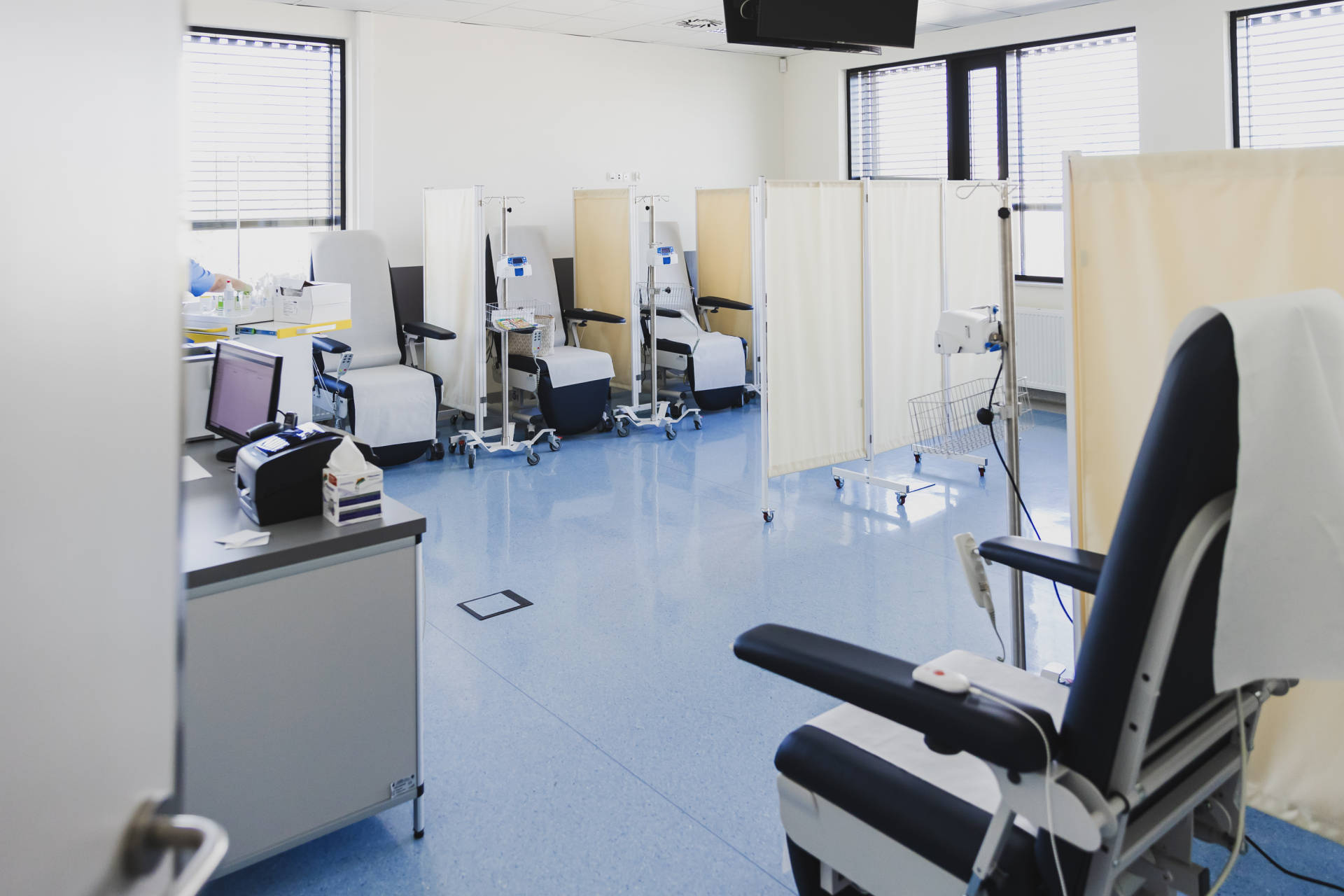Chemotherapy Outpatient Clinic

The activity of the Chemotherapy Outpatient Clinic is organized around daytime chemotherapy treatment. Patients are referred to the outpatient clinic after consultation with a clinical oncology specialist or by an interdisciplinary committee. In the case of daytime therapy, the patient does not stay in the hospital overnight, but returns home after administering drugs.
The outpatient clinic is located on the ground floor of the Main Building of the Oncology Centre and the 1st floor of the Polyclinic.
Chemotherapy consists in administering special drugs to the patient, which are designed to destroy cancer cells in the body. Nowadays, cytostatic drugs, molecularly targeted drugs, hormonal drugs and immunotherapy are used for this purpose. Each of these groups, and among them individual preparations, work differently and that is why they are often combined to create “regimens”. Medicines are prepared in the hospital pharmacy by a team of qualified pharmacists.
Depending on the type of cancer, the stage of its development and the patient’s condition, chemotherapy may be either the main therapeutic line for a given patient or a part of treatment combined with radiotherapy and oncological surgery.
In some cases, it is possible to offer our patients voluntary participation in clinical trials of new drugs. These are phase II and III trials aimed at confirming the effectiveness of a preparation or combination of drugs against a specific type of cancer.
Patient’s path in the Chemotherapy Outpatient Clinic:
- Medical consultation – referral for chemotherapy at the outpatient clinic.
- Development of a treatment regimen – determining the appropriate drugs and the number of cycles.
- Blood chemistry control – takes place before each started cycle, referral to the test is available in the IT system. The patient does not need to have it with him/her.
- Patient qualification for further treatment – on the basis of blood results, a specialist doctor decides about treatment options. If there are no contraindications, chemotherapy will be administered to the patient.
- Administration of chemotherapy – in the treatment room.
- After the end of the day of therapy and after being discharged by the nurse, the patient may leave the hospital and go home.

|
Outpatient Clinic Coordinator
Bogdan Żurawski, MD, PhD
|
|
Head of Medical Care
Zofia Jędrusik, MSc
|
- Konsultacja lekarska – skierowanie na chemioterapię do Ambulatorium.
- Opracowanie schematu leczenia – ustalenie odpowiednich leków i ilości cykli.
- Kontrola biochemiczna krwi – następuje przed każdym rozpoczętym cyklem, skierowanie na badanie dostępne jest w systemie informatycznym. Pacjent nie musi mieć go przy sobie.
- Kwalifikacja pacjenta do dalszego leczenia- na podstawie wyników krwi lekarz specjalista decyduje o możliwości leczenia. Jeżeli nie ma przeciwwskazań pacjentowi zostaje podana chemioterapia.
- Podanie chemioterapii – w gabinecie zabiegowym.
- Po zakończonym dniu terapii oraz po uzgodnieniu z pielęgniarką pacjent może opuścić szpital i udać się do domu.

